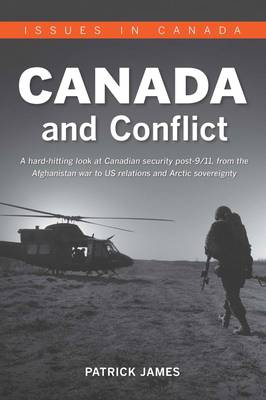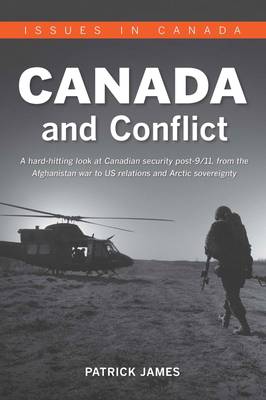
Door een staking bij bpost kan je online bestelling op dit moment iets langer onderweg zijn dan voorzien. Dringend iets nodig? Onze winkels ontvangen jou met open armen!
- Afhalen na 1 uur in een winkel met voorraad
- Gratis thuislevering in België vanaf € 30
- Ruim aanbod met 7 miljoen producten
Door een staking bij bpost kan je online bestelling op dit moment iets langer onderweg zijn dan voorzien. Dringend iets nodig? Onze winkels ontvangen jou met open armen!
- Afhalen na 1 uur in een winkel met voorraad
- Gratis thuislevering in België vanaf € 30
- Ruim aanbod met 7 miljoen producten
Zoeken
Omschrijving
This short, concise book evaluates Canada's evolving foreign policy in a world that changed a great deal in the wake of September 11, 2001. Where Canadians may once have thought of themselves as a "moral super-power" with a focus on peacekeeping, the country's foreign policy has been undergoing a degree of remodelling. This is reflected in significant changes to the Canadian Forces as well as Canada's decision to engage in a sustained combat engagement in Afghanistan, but not in Iraq. In addition, the country's positioning towards the United States has seen adjustments in recent years, as Canadians debate topics including a North American approach to border security, ballistic missile defence, and the reality of a reshaped Arctic border on a warming planet. Award-winning scholar Patrick James surveys Canada's role in international conflict in the new millennium. He discusses key figures, including General Rick Hillier, Hamid Karzai, George W. Bush, and members of the Obama administration, as well as successive governments within Canada. He evaluates key military operations and sites of engagement, as well as strategies for reconstruction in Afghanistan, and later in Libya. Additional topics include NATO and the UN, Canada's growing concern over failed and failing states, and the risks associated with peacekeeping coalitions. James concludes by drawing on the best insights from the field of international relations to speculate about possible future directions.
Specificaties
Betrokkenen
- Auteur(s):
- Uitgeverij:
Inhoud
- Aantal bladzijden:
- 160
- Taal:
- Engels
- Reeks:
Eigenschappen
- Productcode (EAN):
- 9780195432206
- Verschijningsdatum:
- 14/10/2012
- Uitvoering:
- Paperback
- Formaat:
- Trade paperback (VS)
- Afmetingen:
- 150 mm x 229 mm
- Gewicht:
- 181 g

Alleen bij Standaard Boekhandel
+ 30 punten op je klantenkaart van Standaard Boekhandel
Beoordelingen
We publiceren alleen reviews die voldoen aan de voorwaarden voor reviews. Bekijk onze voorwaarden voor reviews.











